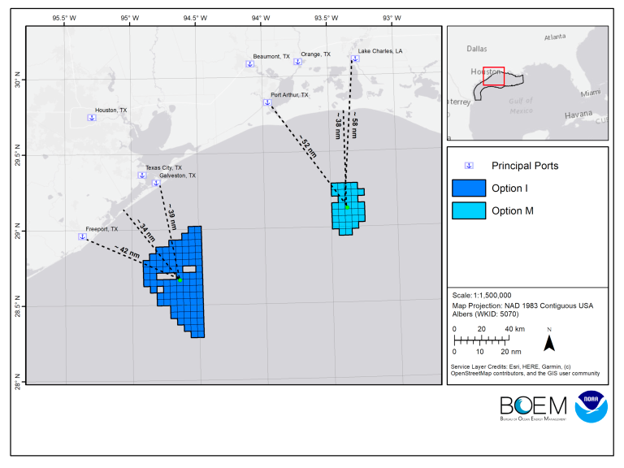In a big step toward a cleaner and more sustainable future, the Department of the Interior successfully conducted the first-ever offshore wind energy auction for the Gulf of Mexico region. This milestone rested on the foundation of the collaboration between the National Centers for Coastal Ocean Science (NCCOS) and the Bureau of Ocean Energy Management (BOEM). NCCOS, in partnership with BOEM, harnessed the power of spatial science to construct an innovative model that identified locations for offshore wind energy development in the Gulf of Mexico region that would minimize conflicts with other ocean uses and the environment.

The coastal ocean is a busy place, which presents a challenge in identifying suitable areas for new industries such as offshore wind energy. The complexities of existing industries, natural resource distribution, national security considerations, and conservation priorities required a comprehensive approach. Leveraging hundreds of data layers, the NCCOS spatial model provided BOEM the best available spatial information to support decision-making on potential locations for wind leasing areas in the Gulf of Mexico.
NCCOS contributed crucial spatial science expertise to BOEM, facilitating informed decision-making throughout this process. This collaborative spatial model supported BOEM with cutting-edge analytical capabilities, and increased transparency for wind energy development.
The NCCOS spatial model helped to find areas of opportunity in a crowded ocean neighborhood in the Gulf, reducing the likelihood of potential impacts on fisheries, endangered species, and other sensitive ecological areas. This data-driven approach not only bolsters the viability of offshore wind energy development but also allows for stronger support from stakeholders and local communities.
As the Gulf of Mexico opens its waters to clean energy initiatives with this lease auction, the NCCOS-BOEM partnership is a testament to the power of spatial science and best management practices. By delivering actionable insights, this model helps BOEM shape a future where sustainable coastal development and environmental preservation go hand in hand.
For details on this effort, read the Department of the Interior press release.
